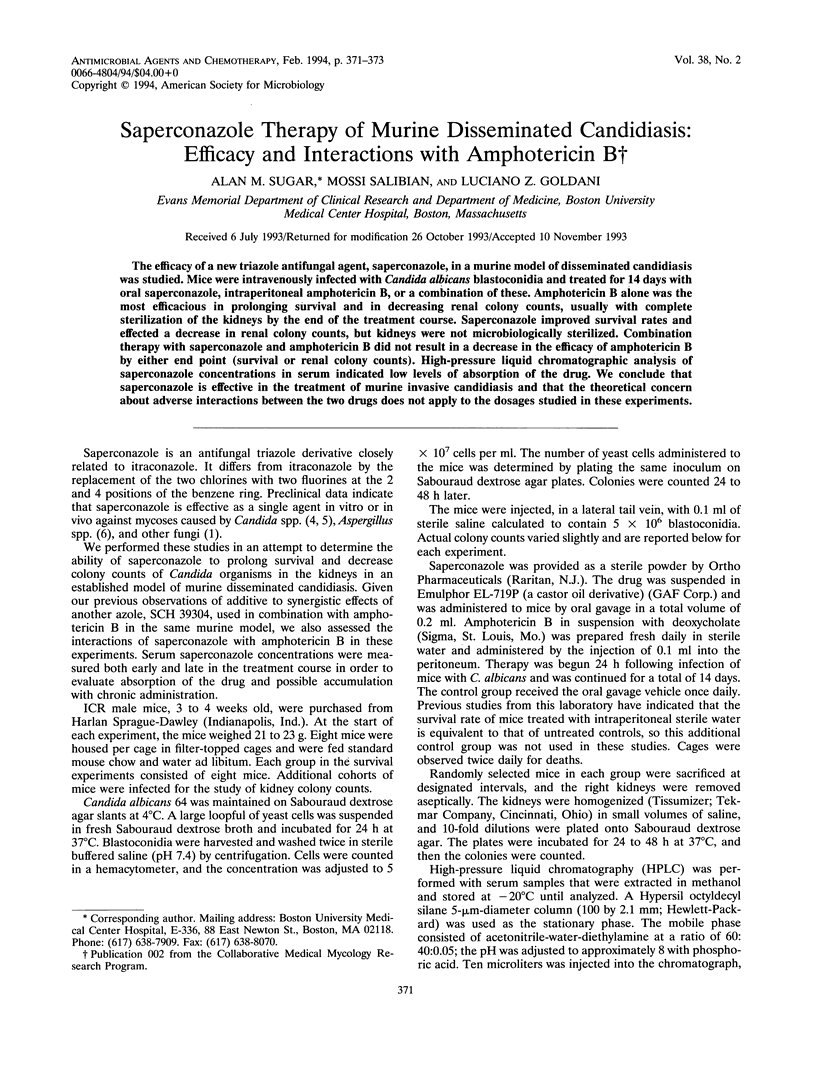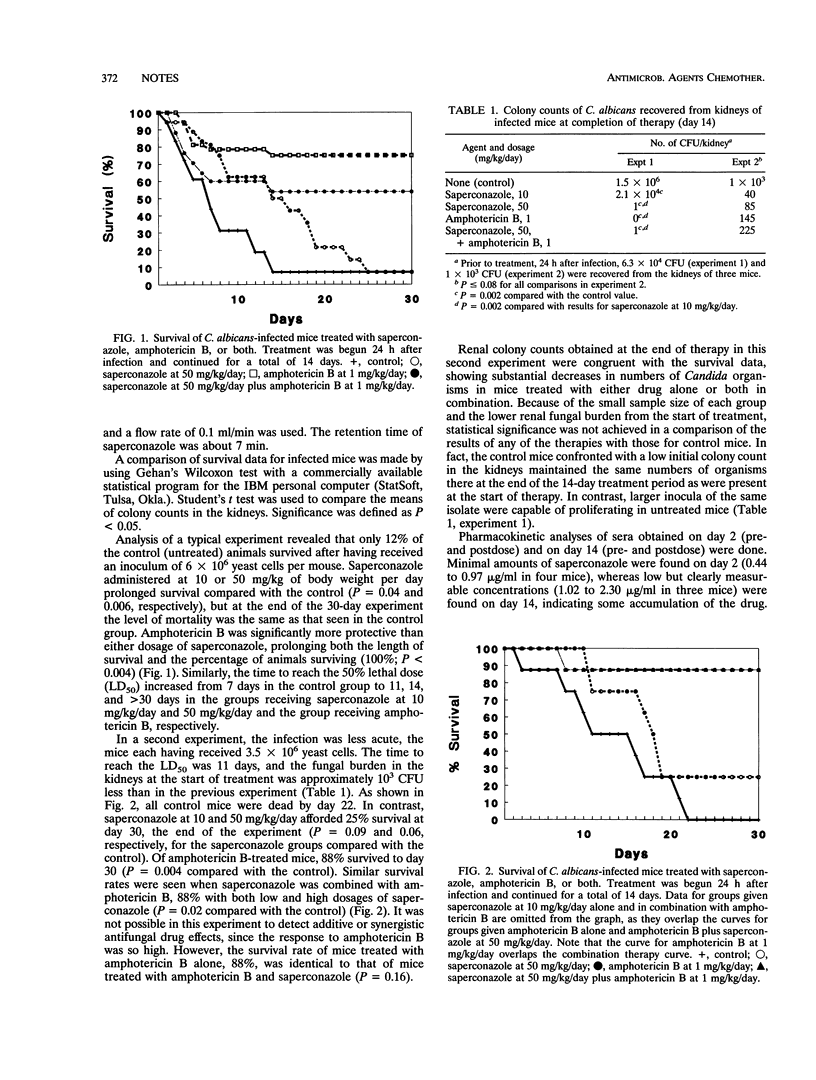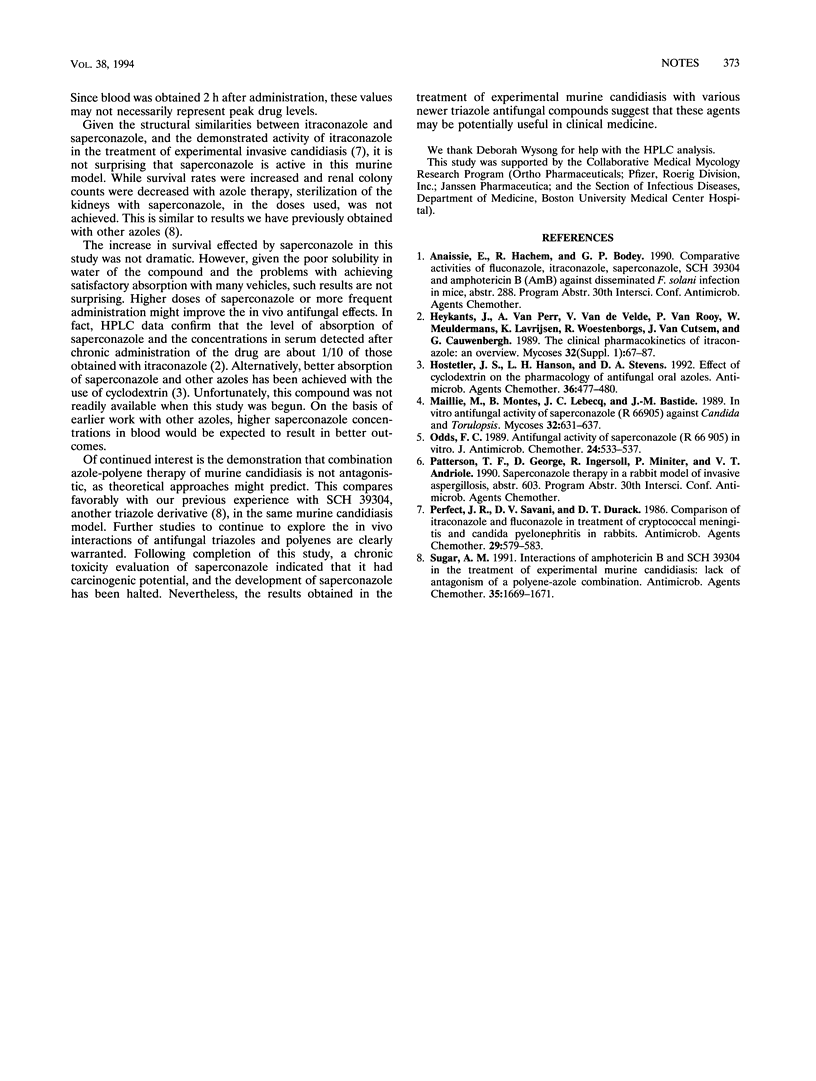Abstract
The efficacy of a new triazole antifungal agent, saperconazole, in a murine model of disseminated candidiasis was studied. Mice were intravenously infected with Candida albicans blastoconidia and treated for 14 days with oral saperconazole, intraperitoneal amphotericin B, or a combination of these. Amphotericin B alone was the most efficacious in prolonging survival and in decreasing renal colony counts, usually with complete sterilization of the kidneys by the end of the treatment course. Saperconazole improved survival rates and effected a decrease in renal colony counts, but kidneys were not microbiologically sterilized. Combination therapy with saperconazole and amphotericin B did not result in a decrease in the efficacy of amphotericin B by either end point (survival or renal colony counts). High-pressure liquid chromatographic analysis of saperconazole concentrations in serum indicated low levels of absorption of the drug. We conclude that saperconazole is effective in the treatment of murine invasive candidiasis and that the theoretical concern about adverse interactions between the two drugs does not apply to the dosages studied in these experiments.
Full text
PDF


Selected References
These references are in PubMed. This may not be the complete list of references from this article.
- Heykants J., Van Peer A., Van de Velde V., Van Rooy P., Meuldermans W., Lavrijsen K., Woestenborghs R., Van Cutsem J., Cauwenbergh G. The clinical pharmacokinetics of itraconazole: an overview. Mycoses. 1989;32 (Suppl 1):67–87. doi: 10.1111/j.1439-0507.1989.tb02296.x. [DOI] [PubMed] [Google Scholar]
- Hostetler J. S., Hanson L. H., Stevens D. A. Effect of cyclodextrin on the pharmacology of antifungal oral azoles. Antimicrob Agents Chemother. 1992 Feb;36(2):477–480. doi: 10.1128/aac.36.2.477. [DOI] [PMC free article] [PubMed] [Google Scholar]
- Mallié M., Montès B., Lebecq J. C., Bastide J. M. In vitro antifungal activity of saperconazole (R 66905) against Candida and Torulopsis. Mycoses. 1989 Dec;32(12):631–637. doi: 10.1111/j.1439-0507.1989.tb02195.x. [DOI] [PubMed] [Google Scholar]
- Odds F. C. Antifungal activity of saperconazole (R 66 905) in vitro. J Antimicrob Chemother. 1989 Oct;24(4):533–537. doi: 10.1093/jac/24.4.533. [DOI] [PubMed] [Google Scholar]
- Perfect J. R., Savani D. V., Durack D. T. Comparison of itraconazole and fluconazole in treatment of cryptococcal meningitis and candida pyelonephritis in rabbits. Antimicrob Agents Chemother. 1986 Apr;29(4):579–583. doi: 10.1128/aac.29.4.579. [DOI] [PMC free article] [PubMed] [Google Scholar]
- Sugar A. M. Interactions of amphotericin B and SCH 39304 in the treatment of experimental murine candidiasis: lack of antagonism of a polyene-azole combination. Antimicrob Agents Chemother. 1991 Aug;35(8):1669–1671. doi: 10.1128/aac.35.8.1669. [DOI] [PMC free article] [PubMed] [Google Scholar]



